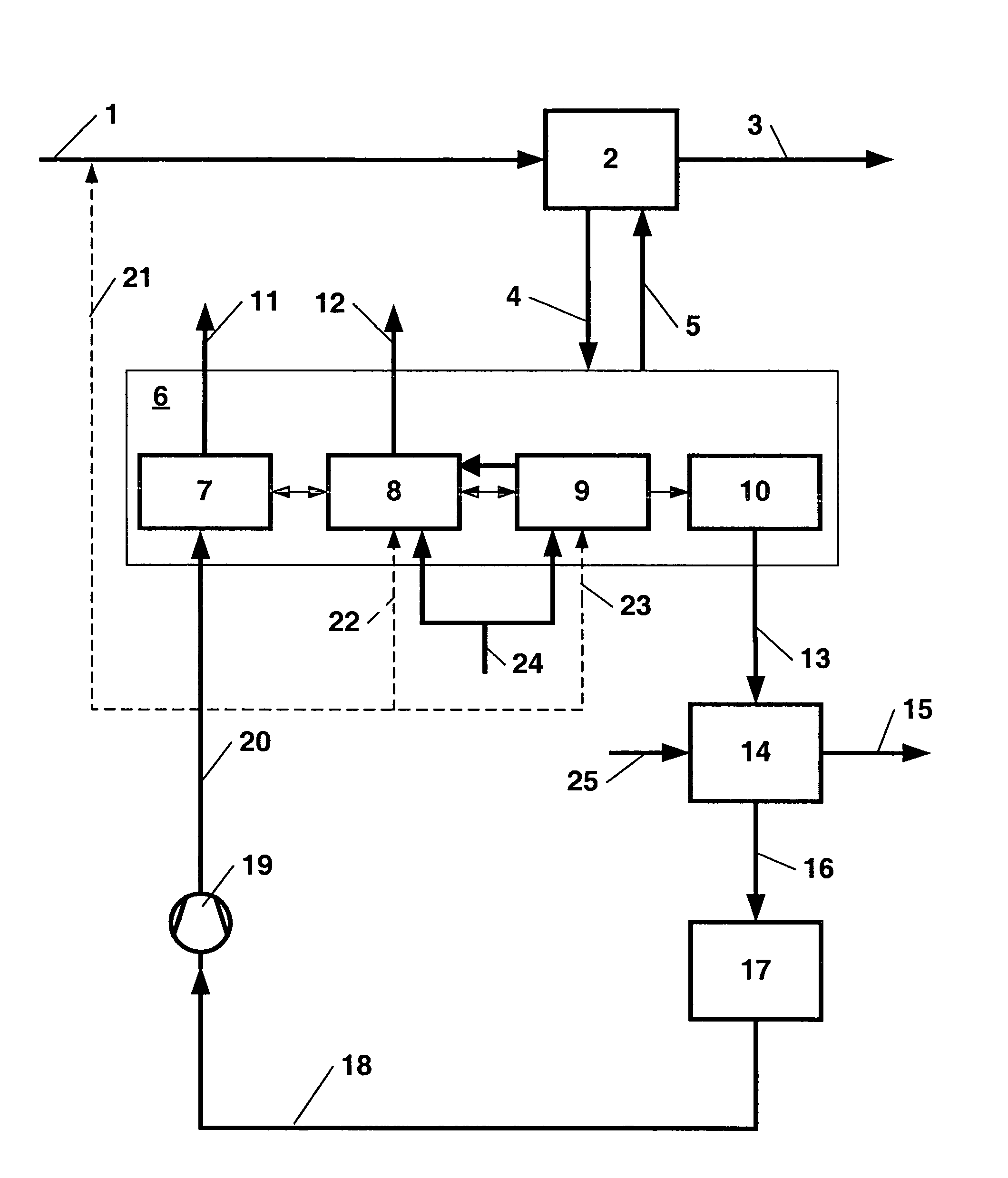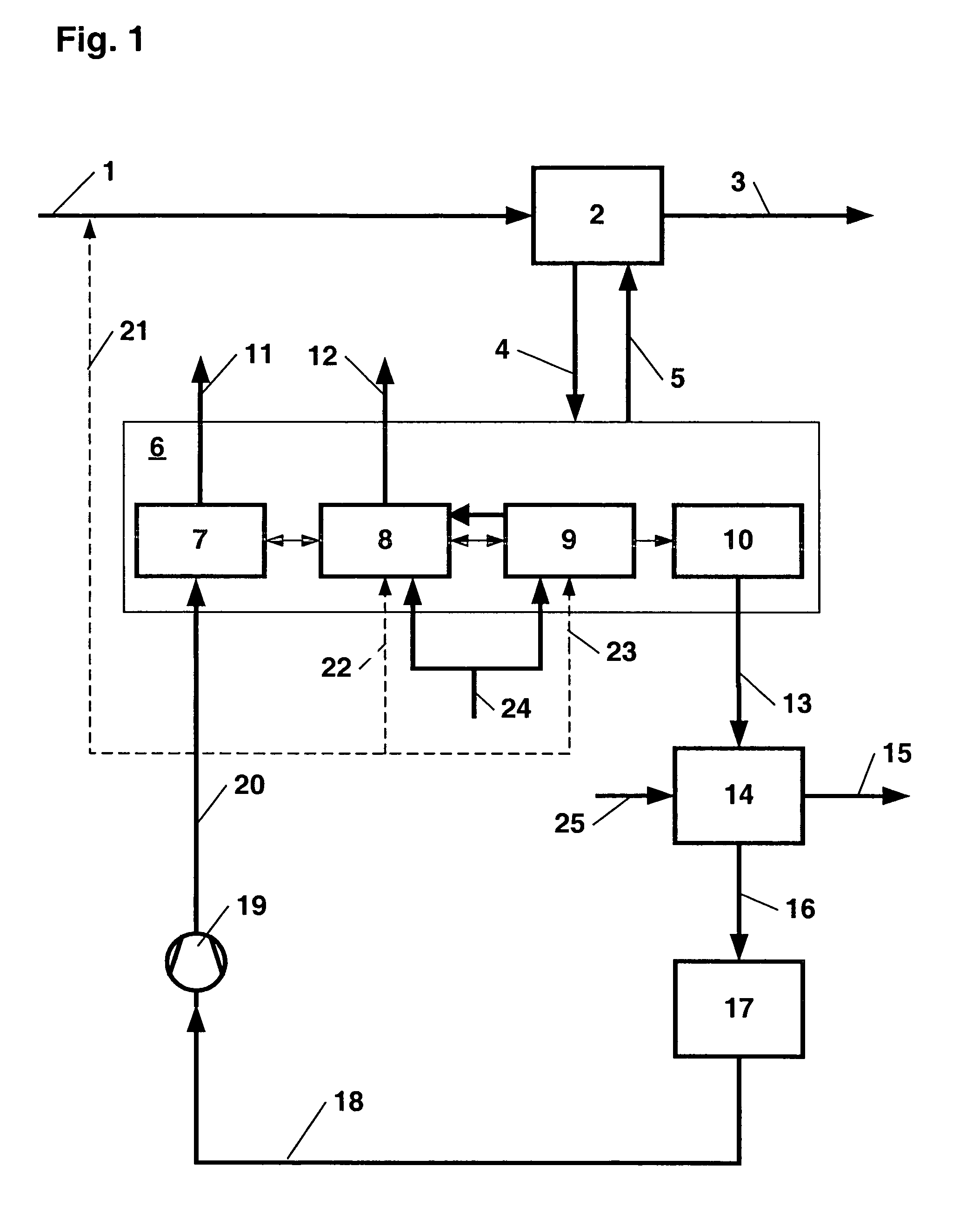Method for removing hydrogen sulphide and other acidic gas components from pressurized technical gases
a technology of acidic gas and pressurized gas, which is applied in the direction of liquid separation agent, inorganic chemistry, separation process, etc., can solve the problems of high investment cost of compressors and the energy required for tail gases compression
- Summary
- Abstract
- Description
- Claims
- Application Information
AI Technical Summary
Benefits of technology
Problems solved by technology
Method used
Image
Examples
Embodiment Construction
[0026]Feed gas 1 with a pressure of 32.8 bars is piped to absorption unit 2 in which hydrogen sulphide and sour gas components such as CO2 are removed. Cleaned product gas 3 leaves absorption unit 2. Laden absorbent 4 is sent to multi-stage regeneration unit 6 encompassing flash column 7, H2S enrichment device 8, CO2 stripping device 9 and thermal regeneration unit 10, it is regenerated there and then recycled as regenerated absorbent 5 to absorption unit 2. Nitrogen 24 is piped to H2S enrichment device 8 and CO2 stripping device 9. Sour gas streams 11 and 12 contain sour gas components, in particular CO and CO2 and inert gas in various chemical compositions, are free of or poor in sulphur components and suitable for further processing in other plant units. Sour gas stream 12 is especially poor in CO and thus suitable for a complete or partial release into the atmosphere.
[0027]Claus gas 13 separated in thermal regeneration unit 10 and laden with hydrogen sulphide as well as air 25 a...
PUM
| Property | Measurement | Unit |
|---|---|---|
| pressures | aaaaa | aaaaa |
| pressure | aaaaa | aaaaa |
| atmospheric pressure | aaaaa | aaaaa |
Abstract
Description
Claims
Application Information
 Login to View More
Login to View More - R&D
- Intellectual Property
- Life Sciences
- Materials
- Tech Scout
- Unparalleled Data Quality
- Higher Quality Content
- 60% Fewer Hallucinations
Browse by: Latest US Patents, China's latest patents, Technical Efficacy Thesaurus, Application Domain, Technology Topic, Popular Technical Reports.
© 2025 PatSnap. All rights reserved.Legal|Privacy policy|Modern Slavery Act Transparency Statement|Sitemap|About US| Contact US: help@patsnap.com


